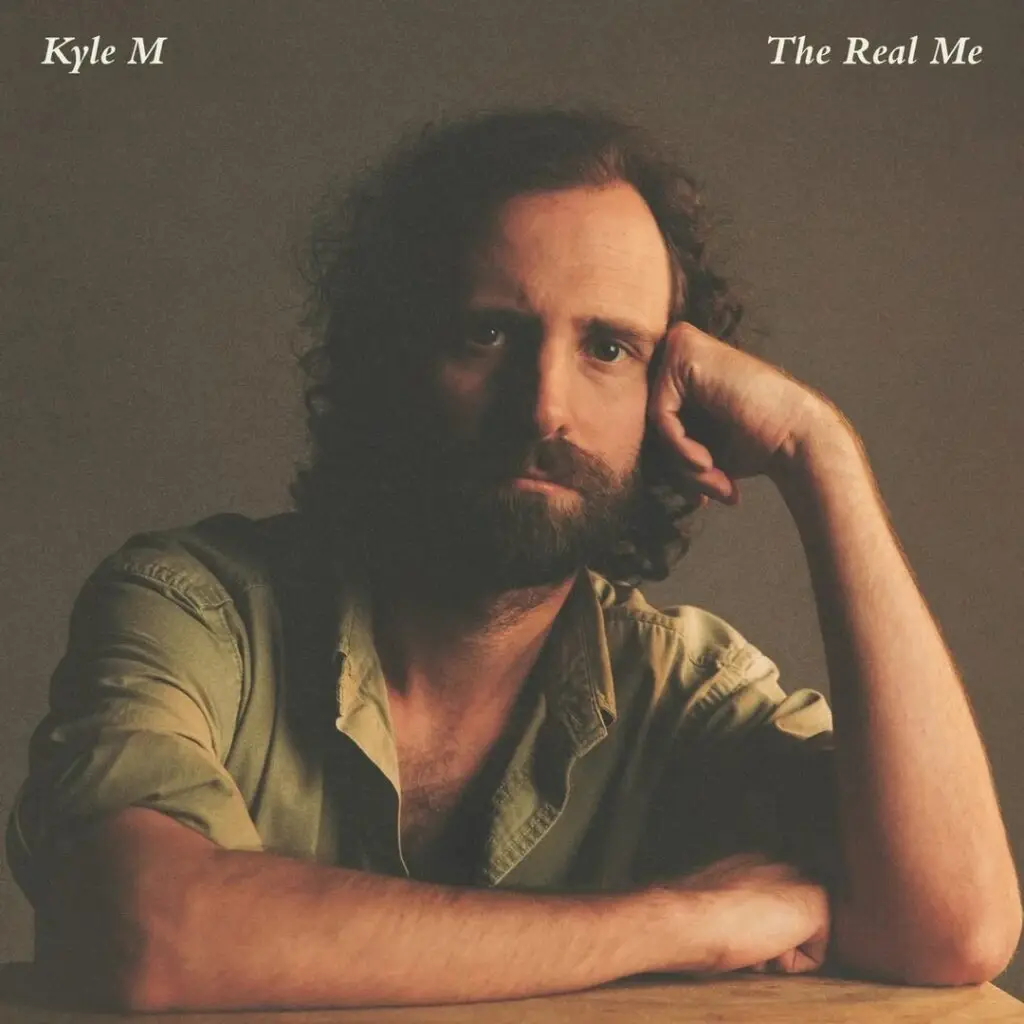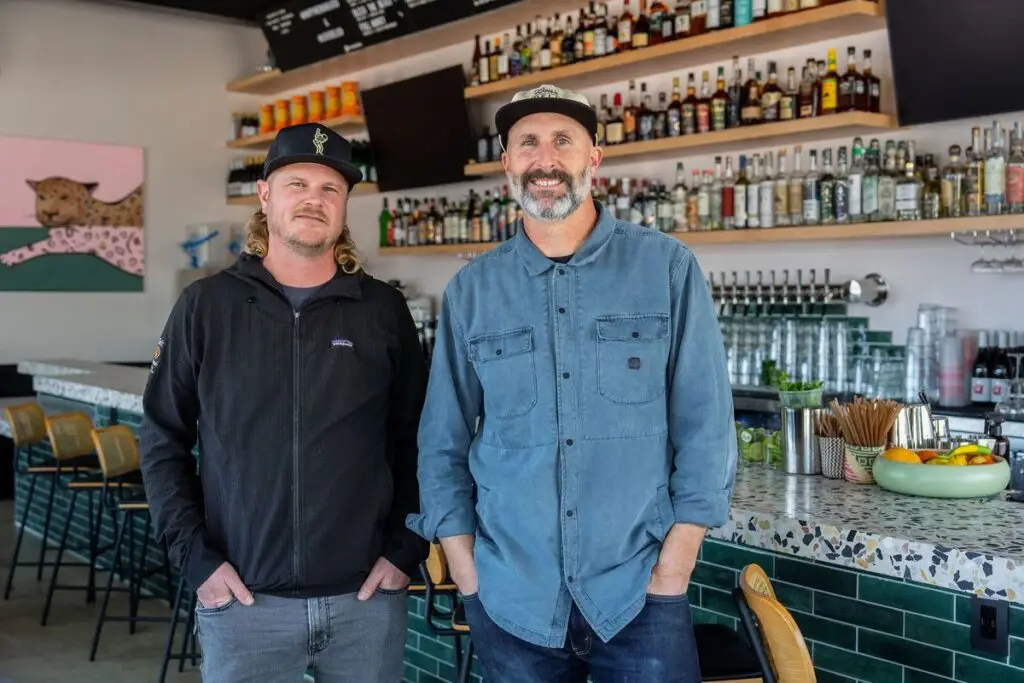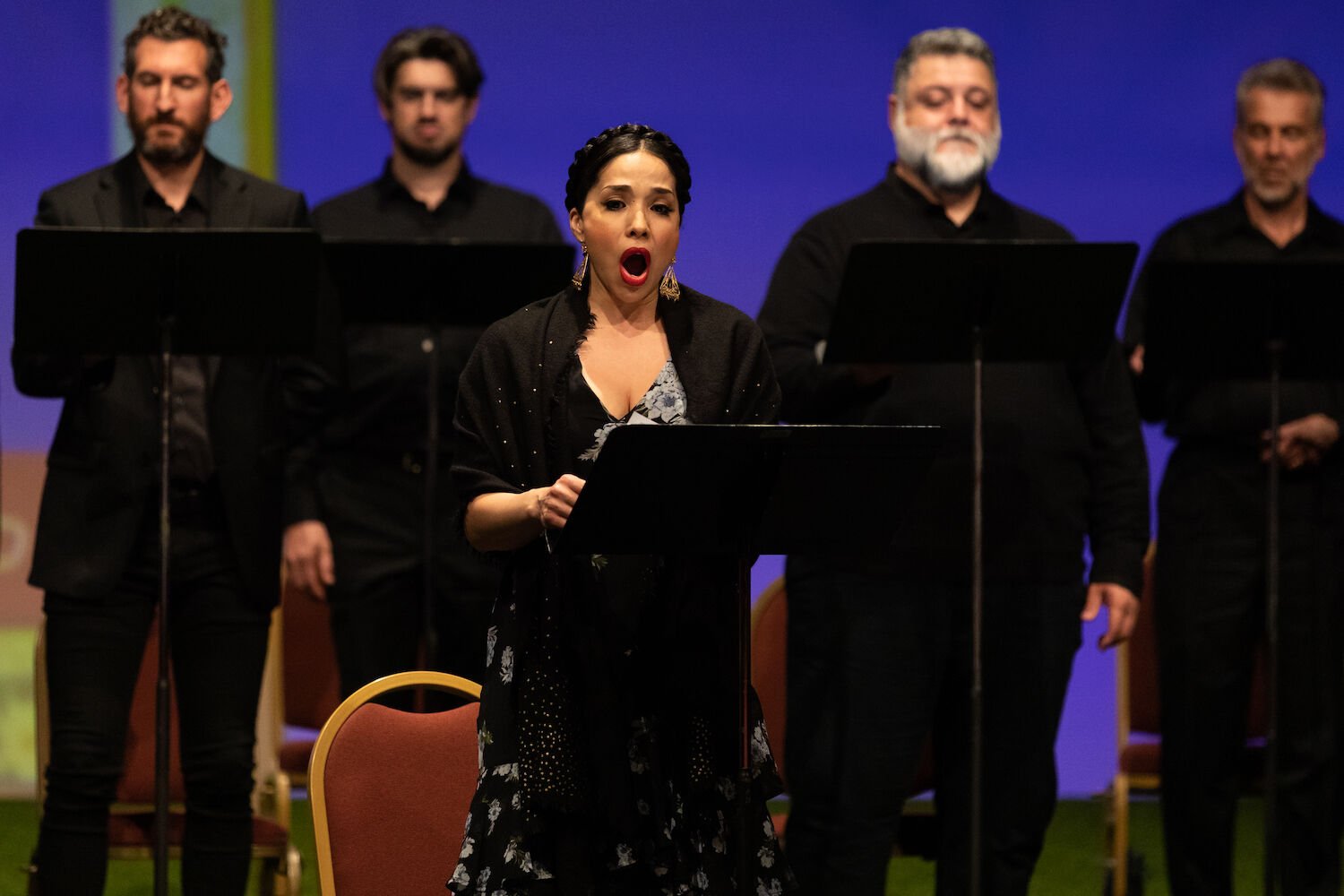
frida-kahlo-sd-opera_sdm1022.jpg
Courtesy of SD Opera
With them you have love, you have pain, depth, passion, politics, sex, visual theatrics, everything—they were performers, too,” says Lorena Maza, reminding me about the theatrical prowess of Frida Kahlo and Diego Rivera. Though long departed, the iconic Mexican couple—who at their peak, seemed to define a country’s artistic culture—will be revived as main characters in the opera Maza is directing, El último sueño de Frida y Diego (in English: The Last Dream of Frida and Diego).
It’s the first opera composed by Grammy-winning Gabriela Lena Frank and the fourth opera world premiere San Diego has ever hosted. Pulitzer-winning playwright Nico Cruz penned the libretto. In other words, nations will be watching.
Co-commissioned by San Diego Opera, San Francisco Opera, Fort Worth Opera, DePauw University School of Music, and with support from The University of Texas at Austin College of Fine Arts, Frida y Diego debuts at the San Diego Civic Center Theater on October 29.
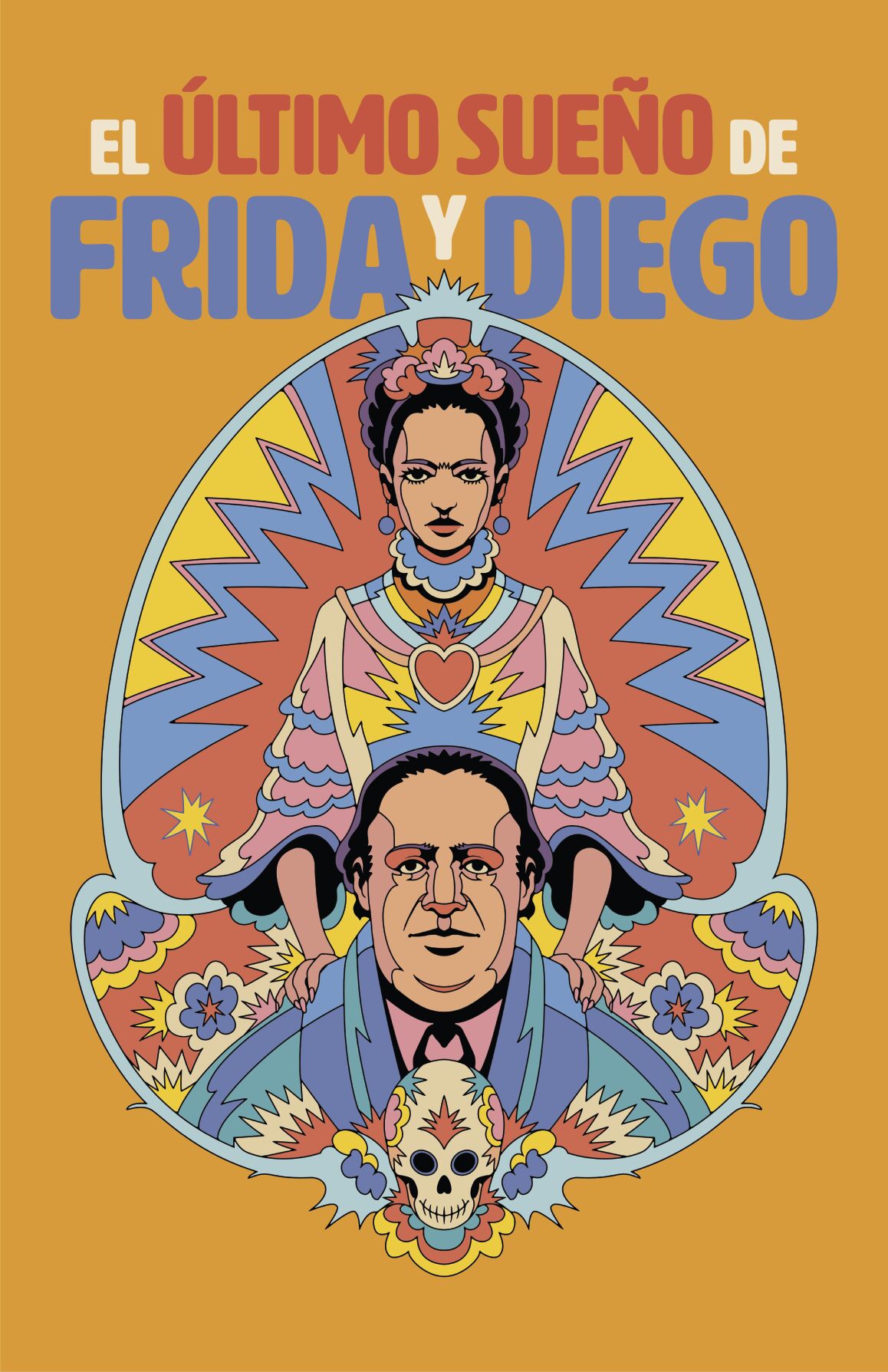
Poster for El último sueño de Frida y Diego by Raul Urias and commissioned by San Diego Opera
Lest anyone think that opera is a staid and static medium whose time has passed, this particular performance helps usher it into the present by connecting with an iconic love story from the near-ish past. Frida, especially, is still a potent modern emblem of art, power, and free-thinking autonomy. Feminist, yes, but not exclusively that. At the same time, El último sueño de Frida y Diego honors cultures that have, historically, not really been represented in opera.
Poster for El último sueño de Frida y Diego by Raul Urias and commissioned by San Diego Opera; Grammy-winning composer Gabriela Lena Frank–El último sueño de Frida y Diego is her first opera.
“Frida Kahlo has been a hero since my girlhood,” Frank says. “Before I could read, I found her in the pages of an art book in my mother’s home library, the only woman in a multi-volume set of ‘great artists.’ My mother pointed out how Frida was small, brown, and creative like us; moreover, thick brow, disabled, and a daughter of both Europe and Latin America, like me. Images in her paintings danced in my dreams for years.”
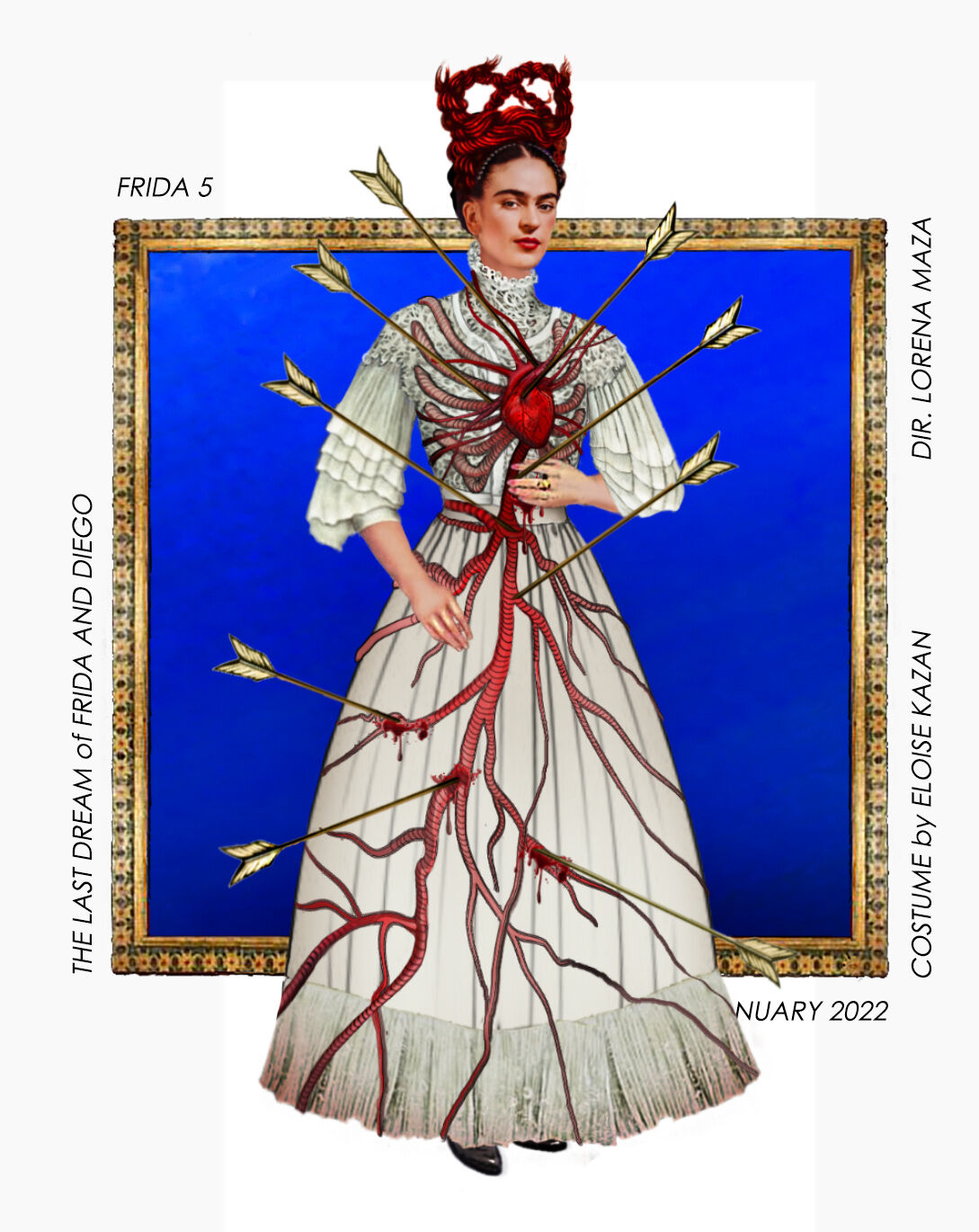
Frida’s costume design sketch by costume designer Eloise Kazan
Courtesy of SD Opera
While the cast and crew hail from “all over,” Maza says, there were pains taken to involve many Mexican creative types, like Maza, who feel cultural liberty to tease out the “extraordinary” and “other-worldly” lives of two of their country’s most heralded artists. There’s also plenty of local involvement, too (sets and costumes were built at the San Diego Opera Scenic Studio and San Diego Opera Costume Shop). Maza says they won’t pay much lip service to what she calls the “commercialization” of Kahlo. The story will come to life through bright blue and orange sets, with vivid illustrations and plenty of marigolds, costume designs, and music conducted by Mexican-born conductor, Roberto Kalb.
It’s also entirely in Spanish. Not even Carmen, which was set in southern Spain but performed in French, can claim that distinction (Guadalupe Paz, who plays Kahlo, was last heard locally as Mercedes in a 2019 production of the Bizet classic).
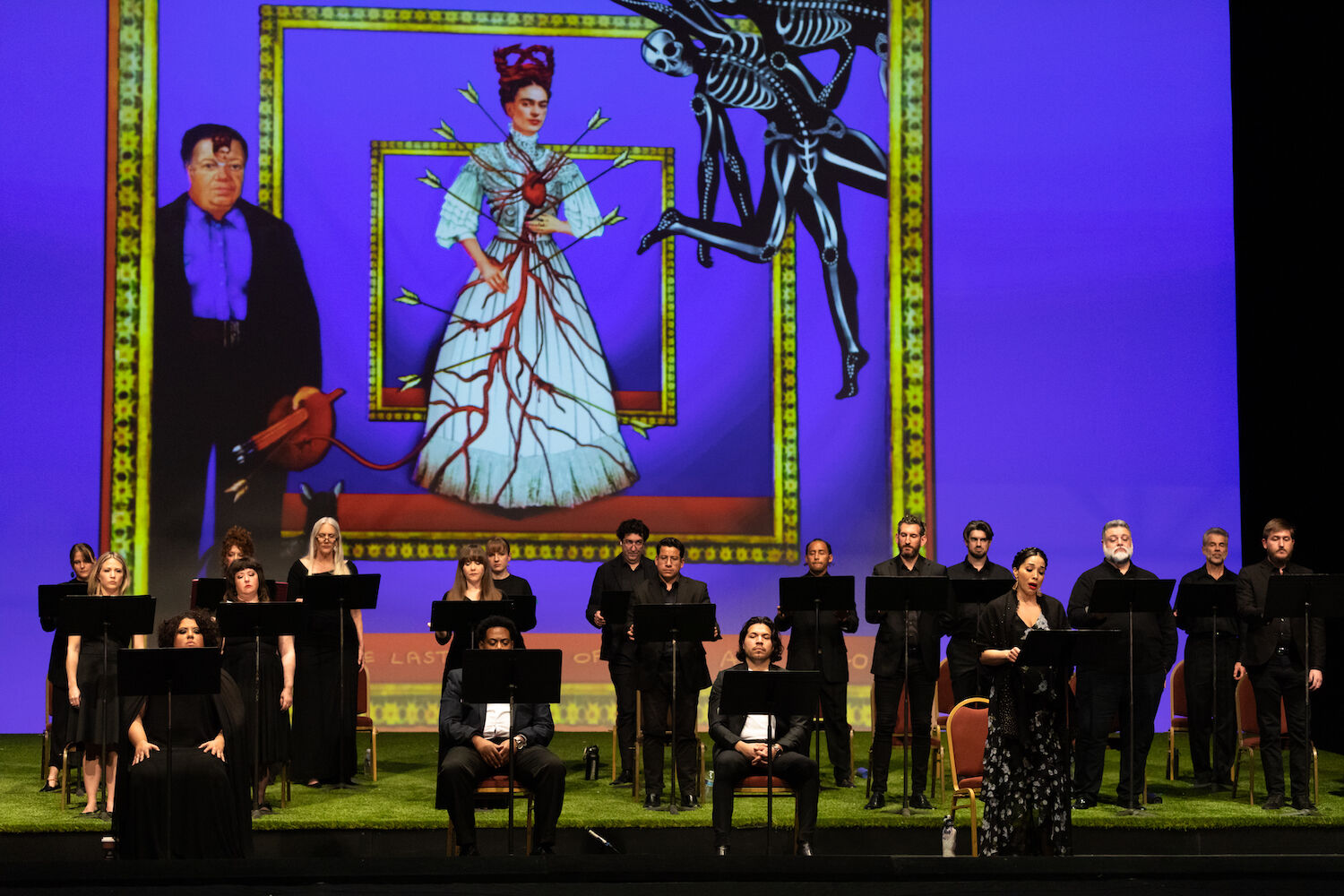
frida-y-diego-set.jpg
Courtesy of SD Opera
Beyond that, this fictional retelling of Frida and Diego’s famously tumultuous relationship is “perfect” fodder for an opera. “The context couldn’t be more dramatic,” Maza says. The story starts on Rivera’s last day on earth, which also happens to be during Día de Muertos celebrations. He’s very sick, about to die. Kahlo has already been dead for three years, but he’s not quite ready to go.
He’s afraid and needs Kahlo, his companion and confidant in the corporeal, to help him cross over to Mictlan, the Nahuatl designation for the “Aztec’s underworld,” Maza explains. La Catrina, depicted somewhat differently from more popular interpretations of the gussied-up, walking skeleton, grants Rivera his wish, and they are reunited one last time.
“It’s very interesting to see this amazing character being so vulnerable and also recognizing that Frida is his only unconditional true and greatest love—the only one that can help him through,” Maza says. It’s a familiar lament: You don’t know what you got ’til it’s gone. But, thanks to pre-Columbian traditions still very much alive in present-day Mexico (i.e., Día de Muertos), nobody who dies is ever truly gone. El último sueño de Frida y Diego explores those lines, leaving the viewer wondering if what they’re seeing is real or just a dream.
Frida y Diego premieres on Oct. 29 at the Civic Center.








